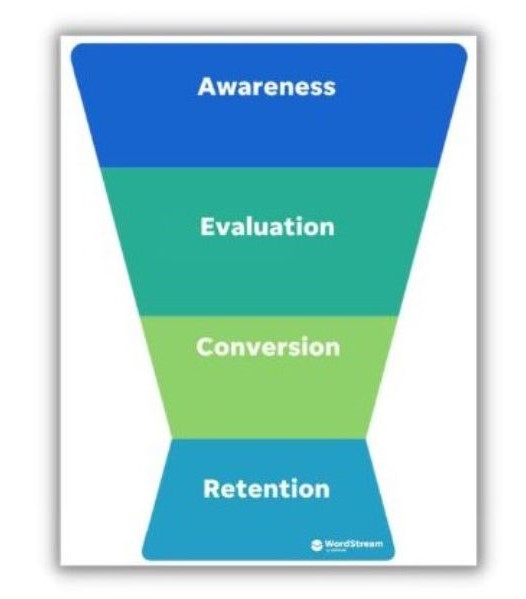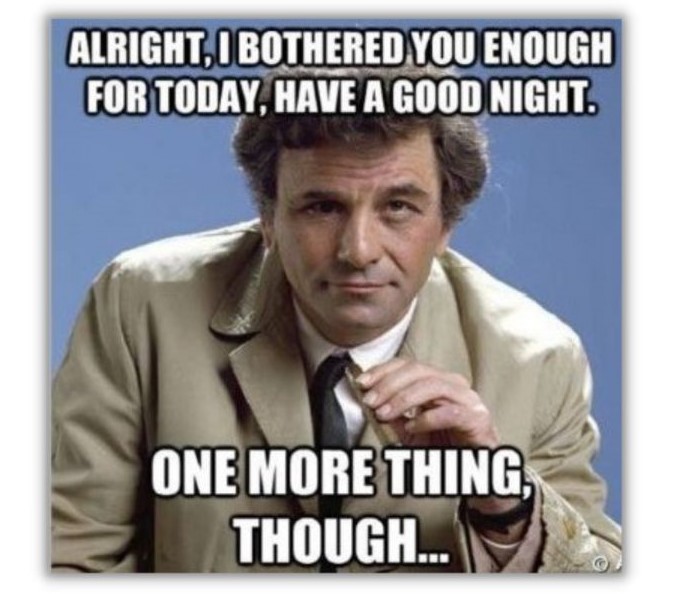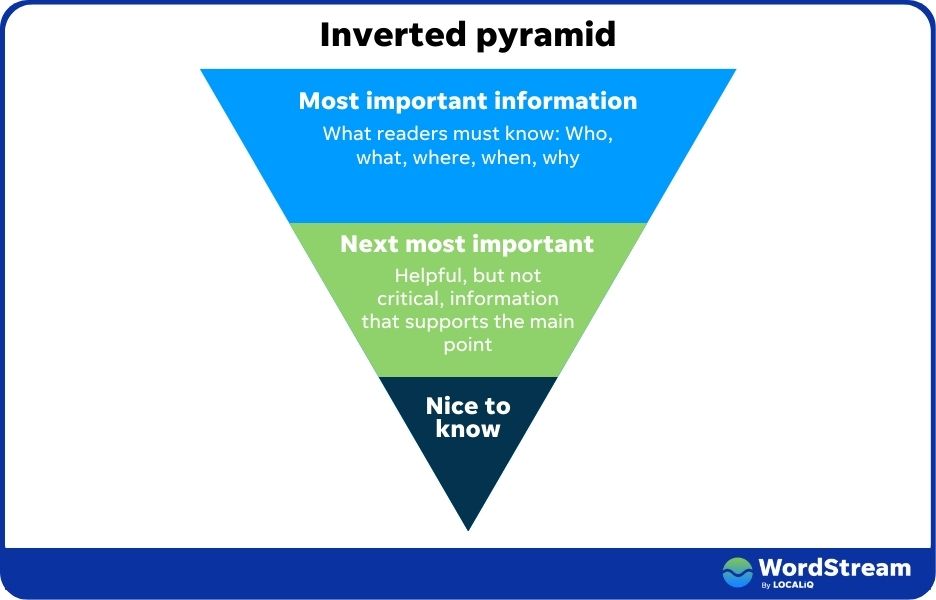PPC
14 Important Copywriting Skills Every Marketer MUST Master

Great copy is all around us. Not just in Nike ads or on billboards, but in emails, social media posts, and those delightful little sandwich boards on city sidewalks.
All those words do some heavy lifting for businesses. They generate awareness, traffic, leads, and conversions. That’s true of sidewalk sandwich boards and seven-figure ad campaigns.
So how do you write copy that converts?
After a decade of professional writing, I’ve found some copywriting skills to be fundamental for choosing words that compel action–whether copywriting is a central focus of your job or just something you dabble in. I’ve listed them here and ranked them, starting with the most important.
Master these skills and your copy will do big things for your business. And if you’re like me, you’ll enjoy the heck out of writing it.
1. Curiosity
The best copywriters I’ve ever read aren’t always the best “writers.” They’re people who genuinely want to understand how something works and are excited to explain it to others.
Famed adman David Ogilvy was the epitome of curiosity. He obsessed over understanding everything about the products he marketed and the people who bought them.

Curiosity is the fuel that energizes every other skill on this list. If you’re curious, you’ll naturally be more empathic. You’ll want to learn marketing strategy. And you’ll be a crazy good interviewer.
You can even leverage your audience’s curiosity to generate more awareness.
That’s why I consider curiosity to be the most important copywriting skill.
2. Empathy
Empathy is an important copywriting skill because it gives us the power to imagine what a customer is battling with so we can explain our solution in a more relevant way.
With a little empathy, you won’t write that a family SUV has a state-of-the-art entertainment system. Instead, you’ll say it has “enough distraction that no one will ask ‘are we there yet?’”
Molly Maids gets it. They use power words like “chaos” and “stress” to empathize with busy parents trying to hold it together during school break.

Empathy is a neurological response, so most of us have it naturally. But you can sharpen the skill with practice.
3. Goal setting
When writing, it’s easy to get lost in turning fun phrases and overusing alliteration. But it’s important to remember that copywriting, by nature, needs a specific goal. It may be to increase awareness of your brand or to have people click a call-to-action button in an ad.

Either way, the goal is your destination and copywriting is how you get there.
Goal setting is an important copywriting skill because, without it, you won’t likely be aligned with your organization’s marketing objectives. Maybe you write copy targeting the wrong type of customers. Or you might be aiming for clicks when the real need is new leads.
Since the goal determines how you’ll research and write copy, goal setting lands high up on this list.
4. Understanding marketing
I’ve yet to be in a situation where something I wrote wasn’t part of a larger marketing strategy. The more I learn about other disciplines like PPC and social media marketing, the more effective I am at writing copy that makes those initiatives successful. That’s how understanding marketing makes its way to the number four spot of important copywriting skills.
Here’s an example. Sales funnels are a foundational concept for marketers.

Once I understood how customers moved through a sales funnel, I was better able to write copy that made each transition smoother. It was especially helpful when I got into writing email marketing copy. I stopped trying to convert every reader and started educating and entertaining people who weren’t ready to buy. Open rates went up and subscriber churn went down.
5. Applying the four Cs of copywriting
The four Cs that describe good copywriting are: clear, credible, concise, and compelling. When you apply them to your copy, it naturally gets better.
The real copywriting skill here though is to know in which order to apply the four Cs.
Here’s how I consider it:
Copy should always be clear.
Above all else, a reader needs to understand your message. Whatever else you do, make sure it’s clear.
Copy should be credible, as long as it remains clear.
Copywriting needs to build trust. Add customer stories, mention awards, etc. to show you’re good at what you do.

Just make sure those additions don’t muddy the message.
Copy should be concise, as long as it’s still clear and credible.
You don’t have much time to get your point across. So cut any words or phrases that don’t serve that purpose. That said, you don’t want to remove so many words that people don’t know what you mean.
Copy should be compelling as long as it’s still clear, concise, and credible.
Copy needs to motivate people to think or do something. You can use some power words, a sense of urgency, or analogies to bring it all home.
There’s a thin line between compelling and pushy, though. If you can’t add more compelling copy without losing credibility (or without making it too long), then trim it down and focus on the other points.
6. Explaining the complex simply
There’s a phrase in education and marketing called explain it like I’m five (ELI5). The idea is to break down complex topics and present them in a way a five-year-old could understand. That’s an incredibly useful skill for a copywriter since you’re often the translator between technical people that make a product and non-technical people who use it.
There are lots of ways to use ELI5. You can use a conversational tone, use copywriting formulas, or add bridge phrases to keep readers engaged.
7. Interviewing like a detective
There’s an old detective TV show called Columbo. In it, the title character kindly, yet incessantly, asks suspects “just one more question” until he understands exactly what happened on the night of the murder.

Interviews aren’t interrogations. But when you approach a customer or subject matter expert with the drive to get the whole picture, you’ll ask that one more question that exposes a killer story.
8. Applying psychology
One of my biggest regrets is not minoring in psychology. Not because I want to know how to hack people’s brains to sell more. But to better understand how people process information and to write better emotional ad copy. That’s a skill any copywriter would benefit from.
In lieu of registering for formal classes, copywriters can learn about specific psychological principles and practice folding them into their copy. There are also plenty of existing examples of emotional copy to study.
9. Prioritizing like a journalist
Are you familiar with the inverted pyramid? It was one of the first principles I learned in my Journalism 101 class. Essentially, it’s how reporters place the most important information at the top of the page, and then add supporting details after.

In other communication disciplines,it’s called BLUF (bottom line up front).
Either way, it’s a really useful skill for writing Google Ads copy and anything optimized for small screens where most of your message is below the fold.
10. Checking your ego
I learned early in my career that ego is the killer of great copy for several reasons.
First, copywriting is a team sport. The best work happens when people with various experiences collaborate. That means being open to ideas from people who don’t have a writing background.
Second, you sometimes have to delete your favorite bits of copy. The unflattering term is “killing your darlings,” and it means removing really well-written copy that doesn’t match the tone or target of the piece.
And finally, you’ll often need to write something bad to get to something good. When I first started writing, I would bang away at the keyboard, aggressively hit backspace, then pound the keys even harder while trying a new angle. Eventually, I learned to just let a bad version flow first, even if it hurts my pride. There are always rounds of edits to make it great.
11. Understanding SEO basics
We’re getting toward the bottom of the list, but I don’t want to give the impression that SEO isn’t important. Even now in the age of zero-click posts and AI-powered everything, a lot of traffic comes from those search engine results pages. And often, it’s people in the middle of looking for things you sell.
Copywriting for SEO is its own skill. You need to know how to find keywords and fit them into your copy organically. You also should understand things like page structure and alt tags. It takes a little time to master, but SEO copywriting skills are an important arrow in a marketer’s quiver.
If you’re learning this skill, these 9 SEO copywriting tips will help you get pages ranked high on Google and Bing.
12. Focusing on value
I first learned about FAB (feature, advantage, benefit) in a class on sales, years before I started writing. The point of the class was to teach us the difference between a characteristic of a product (feature), how it helps (advantage), and why that will make a customer’s life better (benefit).
The lesson was, to make a product more relevant and valuable, highlight the benefit.

For example, the feature of a new mop could be its spring-loaded wringer. The advantage is that it needs less force to push dirty water out of the mop head. But we’d lead with the benefit, “less effort, faster cleaning.”
13. Keeping your attention on detail…
My first grownup job was as a sales manager for a large retail chain. Our mantra for putting up new displays or stocking shelves was “retail is detail.” While the rhyme falls apart, being detail-oriented is a clutch skill for copywriting as well.
There are dollars behind why paying attention to detail is important. Companies with frequent grammar and spelling mistakes on their website lose double the amount of customers than businesses without those errors. Plus, Google Ads with typos get fewer clicks and cost more per click than other ads.
14. …while being comfortable enough to break grammar rules
Tools like Grammarly and even ChatGPT make getting grammar right pretty easy. The real challenge is adeptly going against the rules when it helps your copy.
As the great Ann Handley put it in her book Everybody Writes, “I encourage you to safely and fearlessly break those rules and to make those mistakes in writing—but only when doing so lends greater clarity and readability.”
So fire up your spell and grammar checkers. But learn from the things they correct. Then, when the opportunity presents itself, you can blur grammatical lines to write better copy.
Gain copywriting skills from the experts
Copywriting isn’t just for full-time, professional marketers. Just about anyone who has to write emails, presentations, or sales flyers for work will benefit from knowing how to do it better.
Here’s a quick recap of the top copywriting skills marketers need to master:
- Curiosity
- Empathy
- Goal setting
- Marketing knowledge
- The four Cs of copywriting
- Explaining the complex simply
- Interviewing
- Applying psychology
- Prioritizing information
- Checking your ego
- Understanding SEO
- Focusing on value
- Keeping attention to detail
- Breaking grammar rules
Luckily, there are lots of ways to learn. These 10 free copywriting resources are a great place to start. They cover formulas, emotional copy, power words, and so much more.





![How AEO Will Impact Your Business's Google Visibility in 2026 Why Your Small Business’s Google Visibility in 2026 Depends on AEO [Webinar]](https://articles.entireweb.com/wp-content/uploads/2026/01/How-AEO-Will-Impact-Your-Businesss-Google-Visibility-in-2026-400x240.png)
![How AEO Will Impact Your Business's Google Visibility in 2026 Why Your Small Business’s Google Visibility in 2026 Depends on AEO [Webinar]](https://articles.entireweb.com/wp-content/uploads/2026/01/How-AEO-Will-Impact-Your-Businesss-Google-Visibility-in-2026-80x80.png)











